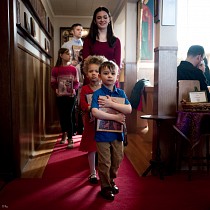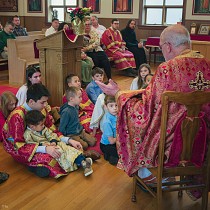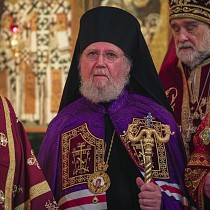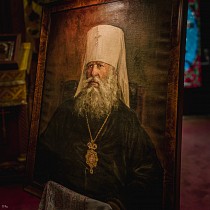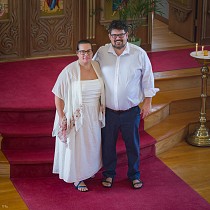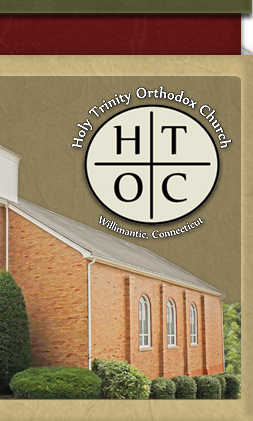The beginning of a new year is often seen as a time for reflection...
Like all which comes from God, the new year signifies a new beginning, and thusly it is to be taken seriously and accepted with much joy. The entire year, complete with its full sanctoral and festal cycle, is capable of transfiguring man…if we allow it to. What happens is the church takes a person or an event and makes it immediate. It makes it now, and it is for each of us to enjoy and celebrate.
These days are not simply the commemoration of a past event, or calling to remember a previous life. These celebrations are not limited to the past. If this were the case, there would be no meaning in all that the church still celebrates. If this were the case, then we would be acknowledging an idea, and it is impossible for man and the church to celebrate ideas.
These next 365 days are quite tangible; that which we celebrate is now. Our anticipated reaction is attentiveness and celebration.Very often we hear about symbolism in the church, as if what and who we are remembering today is somehow not real; that there was meaning previously, but since then, it no longer exists and been replaced by a symbol; that it belongs exclusively to another time.
This is wrong. It is sinful and distorted.Seen apart, and certainly together, each day of each new year offers the possibility of unending and unlimited grace. Each day forms a special union with Christ; it forms Christ in us. The saints and feasts we remember in 2012 must be seen and embraced in man’s total surrender. They must be seen as necessary for our salvation. Then, when we then live our lives in the present, the here and now, then we do so in a spirit of humility, joy, and eternal gratitude.
– Fr Marc Vranes, New Year’s Day, 2012







